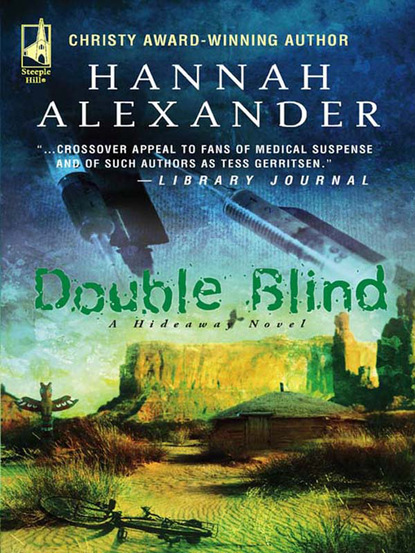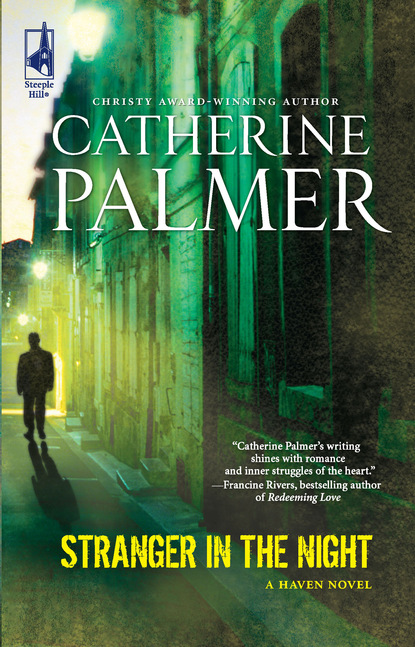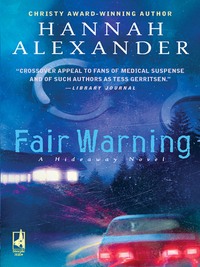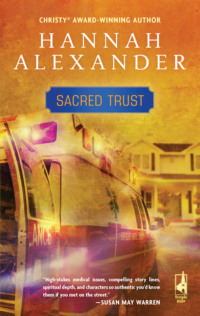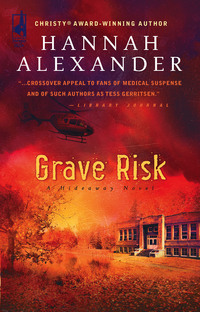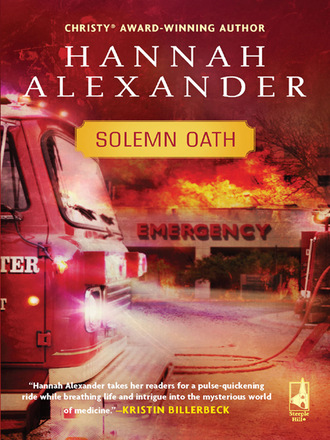
Полная версия
Solemn Oath
He heard the man put the phone down and ask his wife, heard her frantic reply and a small clatter of bottles, and then suddenly remembered who else lived near Old Well. Yes!
Chapman came back on the line. “We’ve got half of a little bottle of vanilla, Doctor. Is that enough? Will that help?”
“Give it to him, but you’ll need more.”
“He’s not showing any symptoms yet. He isn’t acting sick.”
“The symptoms won’t show up for twelve to twenty-four hours.” And then it would be too late. “Mr. Chapman, do you know Emmet and Ruby Taylor? They live out in the hills near you at the edge of Mark Twain National Forest, about two miles from the cemetery by the church at Old Well.” He should know. Ruby Taylor had almost died of lead poisoning from her still a few months ago. The still had been destroyed since then, but Lukas knew Ruby. “Take your son over to their place. Tell them I sent you, and ask for a bottle of their best. They’ll have liquor somewhere.” He prayed that the Taylors were there. They usually were, with their teenage boys and dairy farm, pigs and chickens and rusted-out tireless cars sitting in the front yard.
“You want me to get my little boy drunk?” Chapman asked, a hint of indignation in his voice, as if it had suddenly dawned on him what Lukas was saying.
“I want you to get enough grain alcohol down him to counteract the effects of the antifreeze,” Lukas said. “About three tablespoons of Ruby’s stuff ought to do it, but you don’t want to overdose him, especially since we don’t know how much he’s ingested. Mix some orange juice or something with it so he’ll drink it. Maybe some sugar will kill the taste. Then get him here as fast as you can.”
“Won’t the alcohol interfere with the antidote?”
“In this case, the alcohol is the antidote. Mr. Chapman, the effects can kill him if you don’t treat.” He didn’t want to be cruel, but the man needed to be aware of the serious risks. The sound of a siren echoed through the doors, then the reflection of ambulance lights bounced against the bay entrance. “Are you okay with that?”
“Yeah, Doctor. We’ll get him there.”
“Good. I’ll see you then.”
Lukas hung up and got up to walk out to the ambulance bay just as the EMT threw open the back doors of the van. He stepped over to the foot of the first cot that was pulled out.
The patient was a female in a nonrebreather mask, fully immobilized on a long spine backboard with head blocks. She had a large bore IV in her right arm, and blood splattered her clothing. Blood also concentrated in a dark, thick stain that had seeped through a bandage over her right lower leg, where her jeans had been cut free, and a Harris long traction splint held firm.
“Is this the worst?” Lukas asked.
“Sure is. She looks pretty bad.” The EMT gestured to the other patient, who was still inside the van. “That’s her husband in there.”
Lukas didn’t like the looks of the patient’s right foot—almost white from lack of circulation. She moaned, but her eyes remained closed.
The paramedic stepped out of the back of the van. Connie was a muscular, seasoned professional with short boy-cut blond hair and a chronically serious expression. “Hi, Dr. Bower. This is Alma Collins, forty-five years old. First responders had to free her from between the car and the concrete balustrade of the courthouse.” Her voice remained monotone, a habit she practiced when she worked with patients to keep from alarming them. “She was unconscious on scene, but she’s been coming around since we’ve been en route, and she’s in a lot of pain. She has an obvious open tib-fib fracture, badly mangled leg, no pulse on the foot. Vitals initially on scene, heart rate 115, BP 90 over 60, respiratory rate rapid, with slight improvement following a liter bag of normal saline wide open. She’s received 700 cc’s so far. A lot of bleeding on scene from right lower extremity, but we managed to control it some after we placed the splint.”
“What about the other patient?” Lukas gestured toward the cot still in the van.
“That’s Arthur Collins, the husband,” Connie said. “He has a deep scalp laceration, and it looks like he may have a dislocated or broken right shoulder. He lost a lot of blood from the scalp, but it’s been controlled by direct pressure.”
Lukas reached forward to check Alma more thoroughly while he continued to talk to Connie. “What else is coming?”
“Two more are on their way in the BLS ambulance, and one’s coming in by private car.”
Lukas placed his hands over the sides of Alma’s hips and gave a gentle but firm squeeze. There was no reaction of pain. Good. He would get a film on it, but if she didn’t have a pelvic fracture, it would be a lot easier for her. As Connie continued with the report, Lukas helped her rush the patient through the doors and into the first trauma room, leaving the EMT and E.R. tech to handle Alma’s injured husband.
“Judy, get a chopper on standby,” he called over his shoulder as he and Connie transferred Alma to the exam bed. “And let Lab know we’ve got stat blood work for them.” He turned to Lauren, who had come in behind them. “Start another IV, and draw blood for a stat trauma panel.”
Alma’s pupils reacted briskly, and her breathing, though a little fast, was even. Her eyes remained open after he checked them. She moaned again, and Lukas bent toward her. “Mrs. Collins, I’m Dr. Bower, the E.R. physician here.” Because Connie’s businesslike manner could sometimes make a patient feel cut off from human support, he injected even more tenderness than usual into his own voice. “Can you hear me?”
Physical pain etched itself in the lines of the woman’s face. Her eyes filled with tears. “Yes…Hurts bad…Can you help me?”
“Yes. I’m sorry, but I need to do a quick check and ask you some questions. Do you have any drug allergies?”
She attempted to shake her head.
“Please don’t move your head or neck until we know how badly you’re hurt. Just tell me yes or no.”
“No.” Her voice shook with the effort to control her reactions.
“Good. I know your right leg hurts. Do you have pain anywhere else?”
“My head.” Her chin quivered. “I think I hit my head.”
“Were you knocked out?”
“I think so. Arthur?” She stretched out the fingers of her right hand as if to free herself, but she was constricted by the backboard. “Where’s Arthur? Is he okay?”
“I haven’t checked him, but he seems to be doing okay. Do you hurt anywhere else?”
“I can’t tell.” She grimaced. “My leg hurts so bad. Please!”
Lukas turned to find Lauren securing the second IV tube with tape. “Get me a pressure, and if that’s okay, give Mrs. Collins 2 milligrams of morphine, slow IV push. And add 12.5 milligrams of Phenergan. I don’t want to risk the morphine nauseating her.” He looked at the open tib-fib fracture just below the knee, then moved down to look at Alma’s right foot. He still didn’t like what he saw. It was cool to the touch, white, and when he checked for a pulse on top of the foot, he found none. The capillary refill was very sluggish. He had to get this woman to a vascular surgeon fast if he wanted to save her leg.
Lord, guide me. Touch her through me. Give her the comfort I can’t.
He stepped to the hallway and called, “Judy, launch that chopper, then order me a c-spine, chest, pelvis and right tib-fib and ankle X-rays. Have you heard from Dr. Richmond yet?”
“Yes, she’ll be here shortly. She said she had to finish with a really sick patient.”
Lauren straightened from Alma’s bedside. “Dr. Bower, the pressure’s good. Want me to do the morphine?”
“Yes. Run the second IV at 200 cc’s per hour. I want her kidneys well hydrated to prevent damage. I’ll be back in a moment. I need to go check on her husband.” He called out to Claudia to help him and stepped into the next room, where the techs and Connie were transferring Arthur from cot to bed.
Arthur, too, was on a long spine board, with a c-collar and head blocks to keep him as immobile as possible. Blood had seeped through the gauze and Ace bandage the attendants had used to stop the bleeding from an obvious scalp laceration.
Claudia, chunky and motherly and expert with patients, stepped into the room behind Lukas and immediately began her assessment while Lukas talked to the attendants.
“Connie, you said there was a lot of blood loss. How much would you estimate?”
“At least a unit, maybe two,” came the paramedic’s monotone again. “The first responders said he wasn’t answering their questions, but when we arrived he was alert and oriented and asking about his wife. He grew very agitated when he saw her leg. His pressure was a little low, but it came up with a fluid bolus.”
Claudia turned from her assessment and nodded. “BP’s 122 over 79, heart rate’s 110.”
Lukas nodded. Not bad. “Okay, get me a second IV.” He stepped to the head of the bed and introduced himself to Arthur Collins.
“How’s Alma?” the man asked. “My wife…she looks so bad. She’s—”
“She’s very worried about you,” Lukas said. “We’ve given her morphine to help control her pain, and we’re running tests now to assess her injuries. How about you, Mr. Collins? Where do you hurt?”
The man closed his eyes for a moment, as if trying to focus for a few seconds on his own symptoms. “Call me Arthur. We’re Arthur and Alma. My right shoulder and my scalp took a beating, but please take care of Alma first. Her leg looks so bad, Dr. Bower. Can you help her?”
“We’re going to fly her to Springfield for vascular and orthopedic surgeons to take care of her. I’ve already ordered an Air Care helicopter.” Lukas took out his penlight. “I’m going to check your pupils right now.” He shone the light into the man’s worried eyes. “Are you having any trouble with blurred vision?”
“No.”
“Nausea or vomiting?”
“No. When will the helicopter be here?”
Lukas turned off the light and put it in his pocket. “Shouldn’t be too long, less than thirty minutes. Arthur, it’s very important that I know if you’re having any nausea. We have you strapped down and on your back, and that can spell trouble if you’re sick. We don’t want to risk letting you develop aspiration pneumonia.”
“I had a little trouble before I got here, but I’m fine now.”
Lukas studied the man’s expression for a moment, trying to decide if he was just trying to divert help and attention back to his wife. “Have you eaten?”
“No, Alma and I didn’t get a chance. Where are you taking her in Springfield?”
“Cox South, unless you have a preference.”
“Cox is fine. Is there room for me in that helicopter?”
“I’m sorry, Arthur, but we’ll need to keep you here for a while.”
Lukas turned to Claudia and ordered blood work and X-rays. “Are the other patients here yet?”
“Yes, they came in just a couple of minutes ago. Lauren didn’t want to leave Alma, so a nurse from upstairs is doing the new assessments. They don’t look too bad.” She leaned toward the patient and placed a hand on his uninjured shoulder. “Mr. Collins, the people from your tour group are here, and they asked us to tell you they’re holding a prayer service out in the waiting room.”
Some of the tension left Arthur’s face, and he sent her a grateful half smile. “Thank you. Will you tell Alma? And, Dr. Bower, will you let her know I’m fine? She worries about me so much.”
“Apparently the feeling is mutual. I’ll reassure her.” Lukas squeezed Arthur’s arm, then went back into Trauma One to find the X-ray tech setting up films, and Lauren taking Alma’s blood pressure again.
“She’s doing better, Dr. Bower.” Lauren glanced at the clear plastic bag hanging from the IV pole. “But she’s still in a lot of pain. Her blood pressure is okay, and she’s responsive. The liter of fluid is almost in.”
“Cut her rate down to 50 cc’s per hour—just enough to keep the IV open. That’ll hold her until she gets to Springfield. Keep the second IV at 200 cc’s per hour.”
The X-ray tech slid a cartridge into the Stryker bed, which was a newly purchased, state-of-the-art setup for the trauma room. “Dr. Bower, I’m ready to shoot.”
Lukas and Lauren stepped out of the room while the tech shot the films, and from the hallway they could see the bustle and activity of a suddenly full waiting room and ambulance bay. As Claudia had said, a group of casually dressed people stood in a circle in the corner of the waiting room and held hands, heads bowed.
The EMT from the Collinses’ ambulance passed by them in the broad hallway, saw Lukas and stopped. “They brought in the drunk driver who hit everybody, Dr. Bower. He’s crying, talking to everybody who walks by, but nobody knows what he’s saying. Sounds like he’s speaking Spanish. The police are here, and they’re itching to haul him in. They’re really ticked.”
Lukas shook his head. “They can’t have him until we’ve checked him out, and that’ll be a few minutes. We’ll need an interpreter. I’ll ask Judy to call one in.” He turned to Lauren. “Repeat Alma’s morphine dose, two milligrams every five minutes, and let me know if her pressure drops or if she develops depressed respirations. And tell her Arthur is okay.”
Lauren nodded. “I’ll reassure her.”
The tech left the room, pushing the portable X-ray machine.
As Lauren went back in to recheck Alma, Lukas walked to the central desk. “Judy, would you please call a Spanish interpreter?”
“Did it already,” Judy said without looking up from her keyboard.
He reached into a drawer and drew out a consent form for Arthur to sign so they could transfer Alma. “Has the chopper called yet?’
Judy’s fingers still didn’t break stride. “No, but I should hear from them any time.”
“When they call, let them know her vitals are stable, but she has a class-one limb threat to her right lower extremity.”
No answer. The sound of the clattering keyboard stilled suddenly.
He glanced up to find the secretary staring toward the entrance, and when he looked, he saw Jacob Casey—Cowboy to most of the citizens of Knolls—come stumbling through the glass doors, aided by an older man in bib overalls. Somewhere, Cowboy had lost his hat.
“Oh no, not again,” Judy said softly.
Lanky, weathered Cowboy was such a frequent visitor in this E.R., Lukas wondered how the forty-three-year-old man had survived his occupation. He’d been kicked, gouged, bitten and knocked senseless on that exotic animal ranch of his—he believed in personal contact with his bison, zebras, lions and whatever else he raised on his three hundred acres of reinforced paddocks. Scars on several areas of his hard-bodied frame attested to his dedication.
Today blood covered Cowboy’s upper right arm and splattered his chest and back. The left arm of his long-sleeved denim shirt had been ripped off and tied over his upper right arm in a crude attempt at a pressure dressing.
Lukas pushed back from the desk and got up to help. “Cowboy, what happened this time?” He took a closer look at what appeared, surprisingly, to be a bullet wound. “Has Leonardo started bearing arms?” Everybody knew the rancher wouldn’t touch a gun.
Cowboy shook his head as he allowed his helper to transfer his leaning weight to Lukas.
“The neighbor shot him,” the farmer said. “He chased Cowboy clear out of the woods into my field with a rifle. I saw it myself. Didn’t take the time to call the sheriff. Guess we oughta call him now, huh, Doc?”
“No need, the police are already here doing an accident report. Would you please go tell them about this? They’ll want to check it out and take your statement.”
The man nodded, then patted Cowboy on his bare good arm. “Don’t you worry, Jake, I’ll take care of it.”
Lukas helped Cowboy to exam room five. “How many times did the guy shoot you?”
“Once.” Cowboy grunted as Lukas lowered him to sit on the bed. “Lost some blood. The guy’s crazy.”
“Is that the one who moved onto that farm next to yours, then started complaining about the smell of the animals? I heard about him.” Lukas removed his patient’s shirt and then helped him lie back. “How much blood do you think you lost?”
“Maybe a pint.” Cowboy’s deep voice thickened with pain as the shirt came off. “No time to measure.”
Lukas stepped out into the hallway and called for a nurse, then returned to the bedside. He made a quick check of airway, breathing and circulation, then listened to Cowboy’s heart. Not bad, a little fast, but understandable under the circumstances. The left wrist had a strong pulse, and the fingers were warm and healthy.
When the relief nurse from upstairs stepped into the room, Lukas gave immediate orders for an IV and a trauma panel, then repeated his check on Cowboy, this time on the arm that had been shot. To his relief, it looked good. “Okay, Jake, I’ll regret this, but give my hand a firm squeeze.” He braced himself for the man’s well-known iron grip, but it didn’t come.
Cowboy grimaced again, the lines of his face deepening as his color faded. “Hurts to squeeze. Is it bad?”
“Not as bad as it could have been.” Lukas pulled on a pair of sterile gloves and reached for a packet of 4x4s. He removed the makeshift bandage and saw no active bleeding. He found the entrance and exit wounds. “What did he shoot you with?”
“Looked like a .22 rifle, almost point-blank. Just up and shot me in cold blood, the same way he did—”
A young steel-faced policeman pulled back the curtain and stepped into the room. “Dr. Bower? Do you mind if we interrupt? The sooner we talk to Cowboy, the faster we’ll be on the guy’s trail.”
Judy came in behind the policeman. “Dr. Bower, we just got a call from the fire department. They’re bringing in two more patients.”
Lukas shook his head in frustration. The day was exploding like popcorn in a microwave. Why did everything have to happen at once?
The secretary continued, “The nurse with Air Care just radioed us, and they’ll be here in a few minutes to pick up Mrs. Collins.”
“Thanks, Judy.” Lukas ripped open one of the sterile packs of 4x4s and a roll of elastic gauze, then regloved and dressed the wound. He looked over at the policeman. “Officer, you can do your interview now. Looks like I’ll have my hands full.” He turned and followed the secretary out of the room. “Judy, I need a right shoulder X-ray in five, and he’s going to need a surgical consult. Is Dr. Wong on call? He usually is when Cowboy gets hurt.”
“Yes, Dr. Wong’s the lucky guy today.” Judy grinned at him. “Cowboy won’t want a surgeon, he never does. Dr. Mercy will be here soon.” Her expression turned serious. “One of the patients they’re bringing in is our part-time EMT, Buck Oppenheimer. He got hurt in a fire.”
“Buck! How bad?”
“Haven’t heard yet. There was an explosion at the Pride of Knolls out by P Highway, and his buddies are bringing him in so he won’t have to wait for an ambulance. I sure hope he’s okay, and I hope his wife doesn’t kill him when she finds out he played hero again.”
Lukas nodded, then went in to check on Alma again and read her X-rays. There were no pneumothorax or rib or pelvic fractures, but the X-ray of her right tib-fib confirmed his worst fears. Both bones of the lower leg were shattered. If the blood vessels and nerves were as badly damaged as the bone, they would be doing an amputation in Springfield instead of a vascular and orthopedic repair.
Someone cried out in Spanish in one of the rooms, and Lukas hoped the interpreter would arrive soon. That patient was the one who reportedly had driven the car into Arthur and Alma’s tour group.
One of the most frustrating things in emergency medicine was treating those responsible for the pain and suffering of others—and one of the most difficult things to do was to have compassion for everyone involved.
Lord, give me strength and wisdom. Give Alma and Arthur Your peace, and use me as a vessel of healing. And, Lord, would You please slow things down a little?
Chapter Two
I f this was another disaster drill, Mercy Richmond was going to make someone pay dearly. She kept her white lab coat on to protect the pink-and-blue bunny scrubs she wore underneath—her family practice consisted mostly of women and children. After apologizing to the six long-suffering patients in her waiting room, she marched out the front door and down the block toward the hospital.
Mercy’s stomach growled. Monday afternoon was the worst time to get called out. There’d been no time for lunch. Everyone in this town of ten thousand must have developed strep, flu or pneumonia over the weekend. She shouldn’t have agreed to be E.R. backup today. Her patient volume had increased to the point that she was going to have to stop seeing new patients or start keeping the office open an extra day a week.
This spring she might have considered that possibility, but she’d won custody of her eleven-year-old daughter a few months ago, and she wanted to spend more time at home with Tedi. Since she no longer had to make two house payments, two car payments, and cover the bills her ex-husband had run up, she didn’t need the income she made from E.R. shifts. She hoped Theo never got out of that detox unit in Springfield. Her life was going so well with him out of the way…and with Dr. Lukas Bower taking more of an interest in her and in Tedi. Everything was looking good.
As she stepped across the parking-lot curb and strode toward the E.R. entrance, the distant, thrusting rhythm of a helicopter in flight reached her for the first time. She noticed that the landing pad on the parking lot had been cleared of cars.
Okay, so this time it probably wasn’t a drill.
She looked down. That probably wasn’t fake blood on the concrete, either. In the back rooms of her clinic, she had never been able to hear the ambulances when they pulled into the E.R. Always before, she had considered that to be a good thing. Today, though, she could have used a little warning.
She rushed through the sliding glass doors to find the waiting room filled with people in various stages of fluster. A patient with a splinted arm was being helped inside by a friend. The buzz of voices and the aura of worry greeted her like a familiar coworker. A group of three middle-aged women and two elderly men stood in the west corner by the vending machines with their hands clasped, praying.
That happened a lot around here. It didn’t matter what you thought about God the rest of the time, when you faced life and death in the emergency room, you begged Him to give you another chance. Mercy had done it herself when her own daughter nearly died from a life-threatening allergic reaction to a bee sting—she who had always prided herself on her self-reliance. She’d even considered herself an agnostic until Lukas Bower exploded into her life last spring with his gentle humor, strong compassion for others and his vibrant faith. Nothing in her life had been the same since.
A moan and a tormented shout reached her from one of the exam rooms, but she couldn’t understand the words. The mingled scents of antiseptic, body odor and diesel exhaust from the ambulance bay drifted through the room.
“Thank goodness, Dr. Mercy,” Judy called from the emergency desk. She pulled off her reading glasses and picked up a clipboard with a T-sheet already attached. Her short salt-and-pepper hair spiked out on the right side, where she’d been keeping her ink pen tucked behind her ear. “Dr. Bower’s in Trauma One trying to save the leg of a lady who got hit by a car. Her husband’s in Trauma Two in stable condition, and the guy who hit everybody is in exam room three.” She shoved the clipboard across the desk. “There’s lots more, but Dr. Bower wanted you to see about the man in Two. Name’s Arthur Collins, and he’s really upset about his wife. They just took him off the backboard. Nice guy. Never complains about his own pain. Wish my husband treated me like that.”
Mercy took the chart, then paused as the patient in Three—or so she presumed—shouted something again. The words were slurred, and they sounded Spanish. She raised a brow at Judy. “Who did you say that was?”


